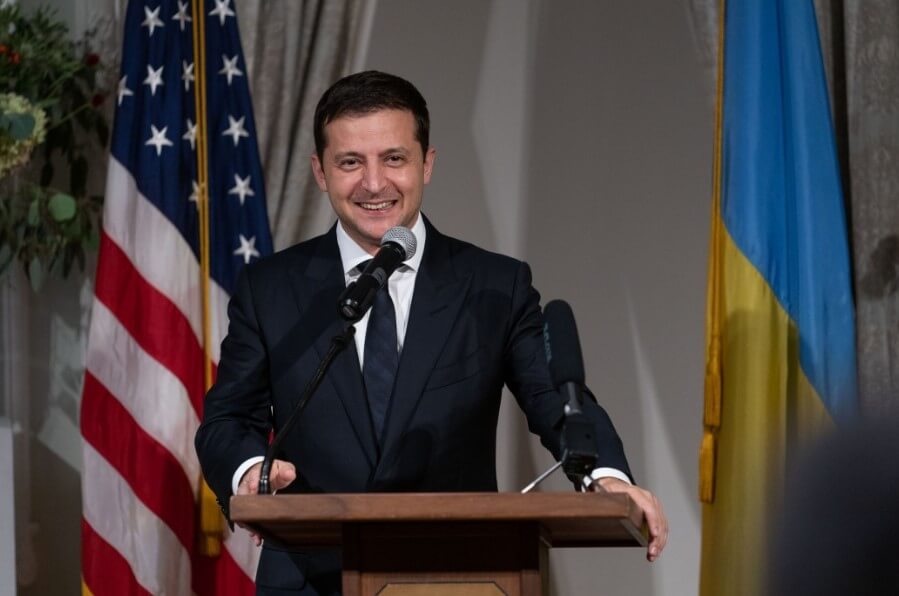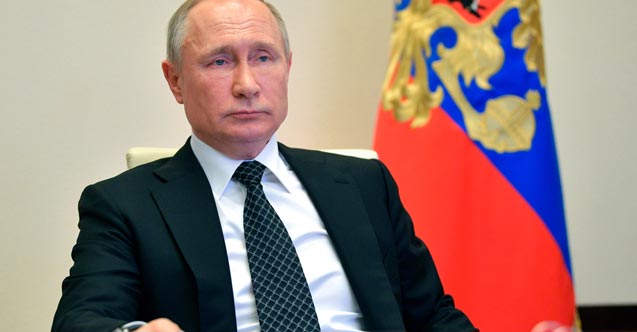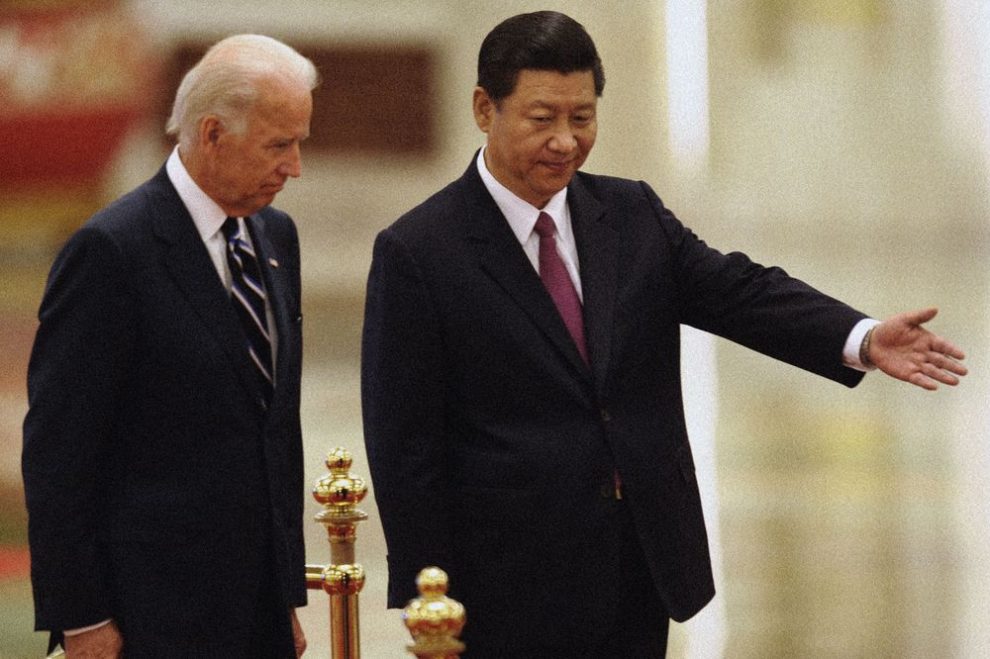After Afghanistan and Kazakhstan cases, Biden lost control in Central Asia and Indo-Pacific and bets on destabilisation to regain lost credibility
By Glauco D’Agostino

At last, Zelenskij understood. He has ended up in a deception involving him in full. He is not directly responsible for this painful war. He is only the political heir to a situation that arose in 2008 when NATO, in its strength delirium and at the world power top after the unleashing wars in Afghanistan and Iraq, decides to open up eastward. Opening means only raising hopes for the people of those states, not the states. Cynically, people will pay any consequences, not the oligarchs. Now, Zelensky has understood it. Quiet, the geopolitical game lasts for decades, so it is. Except the cost is also paid by those who, in the end, have left holding the baby. By the way, what about Yushchenko and Poroshenko, the two US-friend bankers? Poroshenko was also Zelenskij’s opponent in the 2019 elections! Another US rip-off?
At the 2008 NATO Summit in Bucharest, a Declaration point allegedly inspired by George Bush and Polish President Lech Kaczyński states that “NATO welcomes Ukraine’s and Georgia’s Euro-Atlantic aspirations for membership in NATO. We agreed today that these countries will become members of NATO.” A few months earlier, mainly the London press highlighted the news of “an option to a pre-emptive nuclear strike” by NATO itself. Tsar Putin raises his perplexities at the concomitant NATO-Russia Council and in Sochi’s subsequent consultative meeting with the top leaders from the UN, the USA, the EU, and Germany while receiving guarantees that the move was not for anti-Russian purposes. But the four eminent exponents also understand a Tsar is always a Tsar. Direct and correct, as he warns 6 or 13 years earlier. Meanwhile, Ukraine continues on the wave of Yushchenko’s Orange Revolution, the Yanukovych election, then that of Poroshenko of the Maidan Revolution. All elections are questioned, with coup allegations and Supreme Court interventions. Of course, all Westerners support Euromaidan revolutionary legitimacy, all pro-Russians the coup theory, as in-stadium opposite stands. Off, it looks like an internal dispute between die-hard fans, close-up a fratricidal war raging since 2014.

Meanwhile, the US was imposing “Pax Orbis ex Jure”. Let’s see. In 2014 alone, the wars in Afghanistan and Syria caused nearly 100,000 deaths; the insurrection in the Tribal Areas of Pakistan (spill-over of the war in Afghanistan) more than 5,000; the civil war resulting from the granting of South Sudan independence, 50,000; as many in the civil war following the Iraq invasion back in 2003; almost 3,000, following the 2011 Libya invasion, and the same number in the Somali civil war following the 1991 invasion. And we could continue. Additionally, in 2014 nearly 5,000 people lost their lives in the Donbass war. It was the result of the disastrous 2008 NATO Summit in Bucharest. It’s short-term memory. Media information begins the war’s first day with the stout work of the foreign correspondents, some of whom left their lives there. But the geopolitical analysis must remember it even though this does not reduce any ethical responsibility. Wars are always to blame. Exactly! The task of politics, institutions and diplomacy is to prevent or stop them when they are already in place.
The problem is that when politics, institutions and diplomacy degrade to the point of no longer understanding their role, even the choices can no longer predict the consequences. NATO war drills in Ukrainian land are one example of it. International law (always controversial) is not at stake here. The political, institutional, and diplomatic responsibility of the rulers is at stake unless they wish for running this affair. It is understandable in geopolitics. Then, ethical responsibilities come into play to the people undergoing another civil war, yet, and whom we hypocritically give to our solidarity. It is sound for Ukraine as well the other mentioned wars.
The geopolitical theatre is global, and, focusing on the daily war events, we lost the general picture. The countries involved in this wretch war are not only Russia and Ukraine. Zelensky knows it well. Ukrainian nationalist pride or Russian imperialism has little to do with it. Ukraine is the scapegoat for a confrontation for resources, trade and related technologies control. Zelenskij understood the contest takes place mainly in Asia, and the war in his Ukraine is only the tragic side of a covert role play. It is why he is asking for a straight meeting with Putin. It might be too late.
Just two months ago, Kazakhstan was about to suffer the consequences of a massacre game. The instrument? The umpteenth Maidan. “The events in Kazakhstan are not the first and far from the last attempt to interfere in the internal affairs of our states from the outside … The measures taken by the CSTO [Collective Security Treaty Organisation, author’s note] made it clear that we would not let anyone destabilise the situation at our home and implement so-called ‘colour revolution’ scenarios,” Putin had stated. His affirmation is no wonder if a “crazy Putin” is convenient for the West. Except that the “Colour Revolutions” were the instrument with which the US, especially of the Bush jr. era, tried to take advantage of the resurgent Putin’s Russian Federation weakness to impose the strength of “Pax Orbis ex Jure” around Russia itself. These are the cases of Serbia, Georgia, 2004 Ukraine, and Kyrgyzstan. When Biden inherits Bush’s strategy as Obama’s Vice President, the emulation of those more or less successful “Revolutions” take on the semblance of coups, as in 2014 Yanukovych’s Ukraine, as in 2016 Erdogan’s Turkey.
Even the Chinese Councilour of State and Foreign Minister, Wáng Yì, had assured the Kazakh Foreign Minister Tileuberdi on the will to prevent and oppose any attempts at “colour revolutions” and oppose any interference of outside forces. So, again a “colour revolution”, in Central Asia, and in January this year. Chinese intervention is not accidental since the real China-USA game is a bet played in Asia. I underline two elements of analysis I cannot fully perform here (see my article at https://www.geopolitic.ro/2022/01/infrastructuri-critice-emergente-riscuri-geopolitice/):
- The strengthening of the Shanghai Cooperation Organisation when Pakistan and India (two historical rivals) and the Islamic Republic of Iran entered it, in 2017 the former and just six months ago the latter;
- The substantial failure of QUAD [the Quadrilateral Security Dialogue between the US, Japan, India and Australia] for an “Asian Arc of Democracy.” Delhi’s abstention in the vote at the UN Security Council on the resolution intending to condemn Russian intervention in Ukraine emphasised it.

After the Afghanistan and Kazakhstan cases, the US demonstrated its weakness in Central Asia, which, let’s remember, is the Silk Road pivot. If India, already fully involved in the Asian political-economic cooperation with Russia and China, would weaken the western pole of the US Indo-Pacific security cooperation, Washington would close off spaces that are indispensable for its world primacy. At that point, the Ukraine destabilisation as a “casus belli” would not be enough to regain in Europe the credibility Biden has now lost in Asia.


